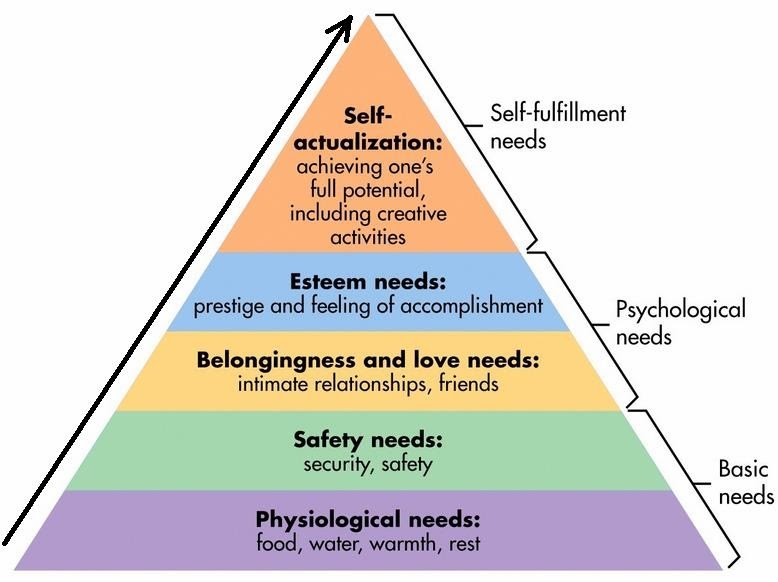HOW TO EXPRESS NEEDS AND FEELINGS VS NON-
FEELINGS AND WITHOUT TRIGGERING THE EGO
When we say I feel, sometimes we use words that express our mental state instead.
The following words and phrases are often used to express feelings.
While they do refer to a certain emotional experience, we will soon discover that they also include a story or interpretation on our part and imply blame or attribute a negative intention to the other person. They are therefore very likely to elicit defensiveness or reactivity, rather than lead to understanding.
Non-Feeling words that imply blame:
Abandoned
Abused
Attacked
Betrayed
Bullied
Cheated
Coerced
Co-opted
Cornered
Diminished
Dismissed
Disrespected
Interrupted
Intimidated
Let down
Manipulated
Mistrusted
Misunderstood
Neglected
Overworked
Patronized
Pressured
Provoked
Put down
Rejected
Taken advantage or
Taken for granted
Treated
unfairly
Threatened
Unappreciated
Unheard
Unseen
Unsupported
Unwanted
Used
Something that you can remember and that can help you be mindful of using these words is that if you are about to express how you feel and instead of simply saying “I feel…” you say “I feel like...” or “I feel that…” or “I feel as if…” you are probably expressing a thought, judgment or interpretation rather than expressing an emotion.
Below are some words that express feelings that are present when our needs are met or aren’t met.
Expressing our feelings versus instilling guilt facilitates greater understanding, acceptance, and true connection between people. (This list of emotions is taken from mindfulforlife website.)
Words that express difficult emotions:
EXPRESSING FEELING MAD Impatient, irritated, disgruntled, frustrated, edgy, irked, grouchy, agitated, exasperated, disgusted, Cantankerous, animosity, bitter, rancorous, irate, furious, angry, hostile, enraged.
EXPRESSING FEELING SAD Lonely, troubled, helpless, gloomy, overwhelmed, distant, discouraged, distressed, dismayed, disheartened, despairing, sorrowful, unhappy, depressed, blue, miserable, melancholy.
EXPRESSING FEELING SCARED Afraid, nervous, startled, anxious, worried, lonely, insecure, anguished, sensitive, shocked, apprehensive, jealous, terrified, horrified, desperate, suspicious, frightened.
EXPRESSING FEELING TIRED Exhausted, fatigued, lethargic, indifferent, weary, overwhelmed, fidgety, helpless, sleepy, disinterested, reluctant, bored, dull, listless, blah, mopey, heavy.
EXPRESSING FEELING CONFUSED Frustrated, perplexed, hesitant, troubled, uncomfortable, withdrawn, apathetic, embarrassed, hurt, hurting, uneasy, suspicious, puzzled, unsteady, restless, sceptical, detached, chagrined.
Words that express pleasant emotions:
EXPRESSING FEELING PEACEFUL Tranquil, calm, content, absorbed, expansive, serene, loving, blissful, satisfied, relaxed, relieved, quiet, carefree, composed, fulfilled.
EXPRESSING FEELING LOVING Warm, affectionate, tender, appreciative, friendly, sensitive, compassionate, grateful, nurtured, trusting, open, thankful, radiant, adoring, passionate.
EXPRESSING FEELING GLAD Happy, excited, hopeful, joyful, satisfied, delighted, encouraged, grateful, confident, inspired, touched, proud, exhilarated, ecstatic, optimistic.
EXPRESSING FEELING PLAYFUL Energetic, invigorated, zestful, refreshed, impish, alive, lively, exuberant, giddy, adventurous, mischievous, jubilant, goofy, buoyant, electrified.
EXPRESSING FEELING INTERESTED Involved, inquisitive, intense, enriched, alert, aroused, astonished, concerned, curious, eager, enthusiastic, fascinated, intrigued, surprised, helpful.

Maslow’s Hierarchy of Needs
UNIVERSAL HUMAN NEEDS
Subsistence
Security
Physical sustenance
Air
Food
Health
Movement
Physical Safety
Rest /Sleep
Shelter
Touch
Water
Security
Consistency
Safety
Order/Structure
Peace (external)
Peace of mind Protection Safety (emotional)
Stability
Trust
Freedom
Autonomy
Choice
Ease
Independence
Power
Self-Responsibility Space
Spontaneity
Leisure
Relaxation
Adventure
Humor
Joy
Play
Pleasure
Rejuvenation
Connection
Affection
Appreciation
Attention
Closeness
Companionship
Harmony
Intimacy
Love
Nurturing
Sexual Expression
Support
Tenderness
Warmth
Acceptance
Significance
To Matter
Care
Compassion
Consideration
Empathy
Kindness
Mutual Recognition
Respect
To be heard, seen to be known, understood
To be trusted
Belonging
Self-expression
Contribution
Understanding others
Community
Communication
Cooperation
Equality
Inclusion
Mutuality
Participation
Partnership
Sharing
Growth
Meaning
Sense of Self Authenticity
Competence
Confidence
Creativity
Dignity
Integrity
Healing
Honesty
Self-acceptance
Self-care
Self-connection
Self-knowledge
Self-realization
Understanding
Awareness Clarity
Discovery
Learning
Making sense of life
Stimulation
Aliveness
Challenge
Contributio
Creativity
Effectiveness
Exploration
Integration
Purpose
Transcendence
Beauty
Celebration
Communion
Faith
Mourning
Hope
Inspiration
Peace (internal)
Presence
To train ourselves to communicate mindfully we must first shift the unhealthy belief that our feelings are someone else’s fault, that they are due to some external event, situation, or thing.
Feelings are always a function of our needs. When our needs are met, we tend to experience pleasant emotions. When our needs are not met, we tend to experience unpleasant emotions.
So, after we are mindful of our state of being and after we are empathetic towards the other’s needs so that they have room to hear us out then we take responsibility for OUR feelings by expressing OUR need that is responsible FOR OUR FEELINGS.
For that we use the structure below:
I feel… because I need / want / value …
or if we want to understand the other person’s feelings we can ask:
Do you feel… because you need / want / value...
It is important that before we express our feelings and needs, we hear the other person out first so that they can HEAR our communication.
It is also important that after we express our feelings and needs in the format above, we do not say anything else. We do NOT elaborate, we do NOT justify them, we say NOTHING ELSE.
We let it sink in and we wait for their communication.